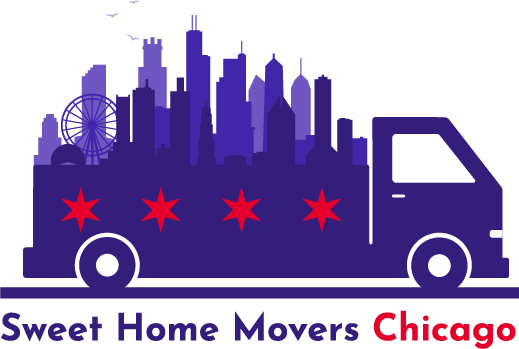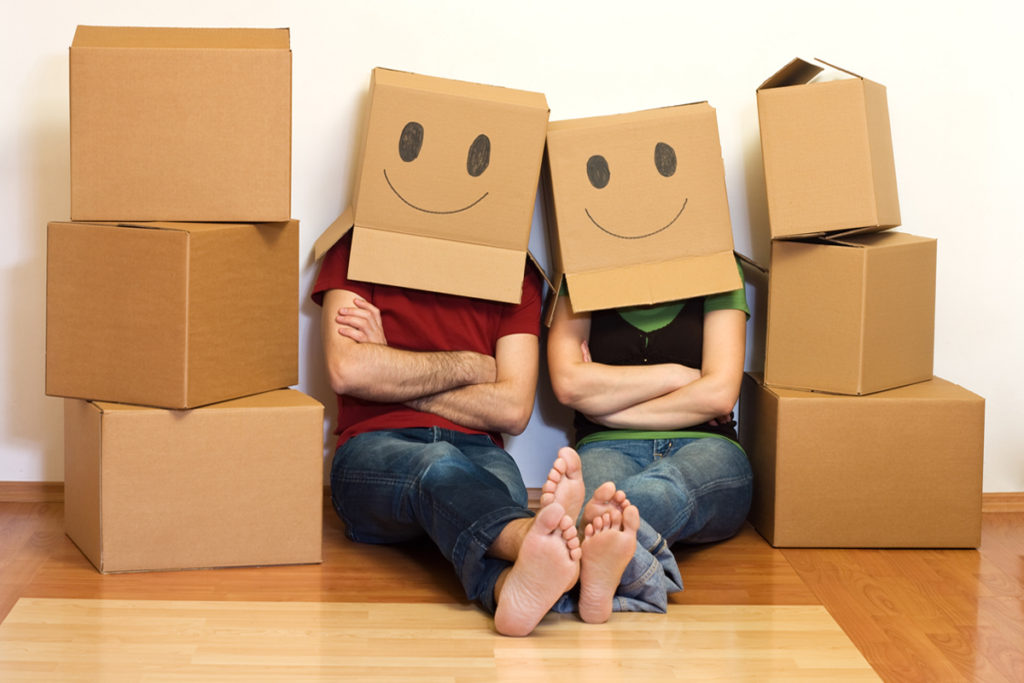Moving into a new home is an exciting chapter, full of fresh starts and new possibilities. However, the process of settling in can be daunting, especially when it comes to unpacking after moving. The sheer volume of boxes, the decision-making process for where things should go, and the desire to make your new space feel like home can create a significant amount of stress. But with the right approach and a few strategic tips for unpacking after a move, you can transform this task into an enjoyable and efficient experience. This blog will guide you through the best way to unpack after moving, ensuring a smooth and stress-free transition into your new home.
- Plan Before You Start
The Blueprint for Success!
Before diving into the actual unpacking process, it’s crucial to have a plan. Knowing where each item will go can save you time and reduce frustration. Take a moment to walk through your new home, visualize where you want your furniture and belongings, and create a mental or written map of how you want things to be arranged. This planning phase will help you avoid unnecessary rearranging later on.
- Label Your Boxes Properly
If you haven’t done this during the packing phase, it might make the unpacking process a bit more challenging. However, try to remember the contents of each box based on size and shape. Going forward, clearly label boxes with their intended room and a brief description of contents.
- Prioritize Essential Areas
The kitchen, bathroom, and bedroom should be your top priorities. Unpacking these areas first ensures that you can carry on with daily life even if the rest of the house is still in boxes.
- Unpack Room by Room
Stay Organized and Focused!
Unpacking after moving is most efficient when you tackle it room by room. This method not only helps you stay organized but also gives you a sense of accomplishment as you complete each space. Start with the most essential rooms, like the kitchen and bedroom, before moving on to less critical areas such as the guest room or garage.
- Begin by unpacking the kitchen first. Having a functional kitchen allows you to prepare meals, which can be a comforting and stabilizing activity during the move. Start with the essentials—pots, pans, utensils, and dishware. Place them in the most logical and convenient locations, considering your cooking habits.
- Next, move on to the bedroom. Unpacking and setting up your bed should be a top priority. After a long day of unpacking, you’ll want a comfortable place to rest. Unpack your bedding and make the bed first. Then, move on to organizing your clothes and personal items.
- The bathroom should be your third priority. Unpack toiletries, towels, and other daily essentials. Having a fully stocked bathroom will make your daily routine easier and more pleasant.
- Break Down the Task
Unpacking after moving can feel overwhelming if you try to do it all at once. Instead, break down the task into smaller, manageable goals. Set daily or even hourly targets for yourself, such as unpacking three boxes per day or completing one room per weekend. This approach makes the task less daunting and allows you to maintain momentum without burning out.
Avoid the temptation to start unpacking another room before finishing the current one. Jumping from room to room can lead to clutter and confusion.
If you’re moving with family, involve everyone in the unpacking process. Assign specific tasks or rooms to each person based on their preferences and abilities.
- Declutter as You Go
Moving is the perfect opportunity to declutter your belongings. As you unpack, evaluate each item and decide if it truly belongs in your new home. If something no longer serves a purpose or brings you joy, consider donating, selling, or recycling it. This will not only reduce the number of items you need to unpack but also help you create a more organized and clutter-free space.
Decluttering Tips
- Often, we accumulate duplicates over time—multiple sets of dishes, extra towels, or outdated electronics. As you unpack, identify these duplicates and decide which items to keep.
- Sentimental items can be tricky to declutter. While it’s important to hold onto memories, consider which items are truly meaningful and which ones you can let go of.
- Stay Mindful of Time
How Long to Unpack After Moving?
One of the most common questions during the moving process is, “How long to unpack after moving?” The answer varies depending on the size of your home, the number of belongings, and how much time you can dedicate each day. However, as a general rule, it’s reasonable to aim for fully unpacking within two to three weeks.
Time Management Tips
- Create a realistic timeline for your unpacking process. This might include specific deadlines for each room or a general goal for when you want to be completely settled.
- Avoid Procrastination. It’s easy to put off unpacking, especially after the initial excitement of moving wears off. Stay committed to your timeline to avoid living out of boxes for months.
- Personalize Your Space
Unpacking after moving isn’t just about getting your belongings out of boxes; it’s also about making your new house feel like home. Take time to personalize each room to reflect your style and personality. Hang up your favorite artwork, arrange your furniture to create cozy spaces, and add personal touches like family photos and decorative items.
Personalization Tips
- Create Comfort Zones. Designate areas in your home that are dedicated to relaxation and comfort. This might include a reading nook, a cozy corner with a comfortable chair, or a well-organized office space.
- Bringing elements of nature into your home can enhance the feeling of tranquility and well-being. Consider adding houseplants, flowers, or natural materials like wood and stone to your décor.
- Seek Help If Needed
Professional Unpacking Services
If the thought of unpacking after moving is too overwhelming, or if you simply don’t have the time, consider hiring professional unpacking services. These experts can help you organize your belongings, set up your furniture, and even decorate your new home. While this option comes with a cost, it can save you a significant amount of time and stress.
Advantages of Professional Help
- Professional unpackers are experienced in organizing and setting up homes quickly and efficiently. They can help you get settled in much faster than you might on your own.
- By delegating the unpacking process, you can focus on other aspects of your move, such as exploring your new neighborhood or taking care of administrative tasks like changing your address.
- Celebrate the Milestones
Finally, remember to celebrate your progress as you unpack and settle into your new home. Moving is a significant life event, and every box you unpack brings you closer to fully enjoying your new space. Take time to acknowledge your hard work and reward yourself for each milestone you achieve.
Once you’re fully unpacked, consider hosting a housewarming party to show off your new home and celebrate the completion of the moving process.
Whether it’s a nice dinner, a spa day, or a small gift for your new home, treating yourself to something special can be a great way to mark the occasion.
Conclusion
Unpacking after moving doesn’t have to be a stressful or overwhelming experience. By planning ahead, staying organized, and breaking down the task into manageable steps, you can make the process smooth and enjoyable. Whether you choose to unpack on your own or seek help from professionals, the key is to approach the task with a positive mindset and a clear strategy. Remember, the goal is not just to unpack but to create a space that feels like home—a place where you can relax, recharge, and build new memories.
So, take your time, follow these tips for unpacking after a move, and soon enough, your new house will feel like the cozy, welcoming home you’ve always dreamed of.

